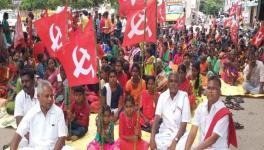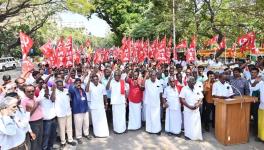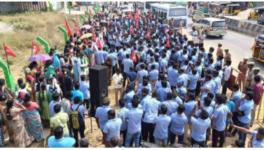Tamil Nadu Urban Local Bodies May Get Representatives Soon after 10 Years
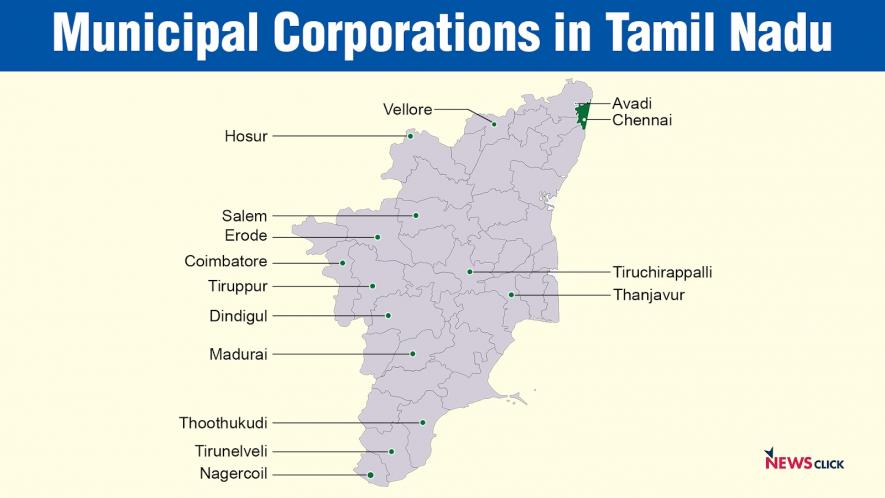
Image credit: R Prakash
Elections to urban local bodies (UBLs) in Tamil Nadu could be held in a few months after a gap of 10 years with the Supreme Court mandating the completion of polls before January 2022. However, the ruling Dravida Munnetra Kazhagam (DMK) could postpone the elections till February with the recent monsoon wreaking havoc in most parts of the state.
The ULBs, in the absence of elected representatives, are managed by special officers who have more than one ULB to monitor. In the process, the public has contact with their immediate elected representative to raise its concerns.
The voters of 15 municipal corporations, including the Greater Chennai Corporation (GCC), 121 municipalities and 528 town panchayats will elect their representatives. Since the elections are contested on party lines unlike the elections to the village panchayats, a keen fight is expected between the two Dravidian parties and their allies to establish supremacy.
The DMK is relying on its governance to make a mark while a weakened All India Anna Dravida Munnetra Kazhagam (AIADMK) could face an uphill task.
WHAT IS AT STAKE?
The electors of the 664 ULBs will elect 12,820 ward members, or councillors. As per the current notification of the state government, the mayors and chairmen will be elected by and from among the elected councillors. Clarity on the mode of election to these posts is awaited as the previous AIADMK regime switched back and forth with Ordinances thrice. The DMK had opposed indirect elections and pressed for direct elections.
The 14 corporations, apart from the GCC, namely Madurai, Coimbatore, Tiruchirappalli, Tirunelveli, Salem, Erode, Tiruppur, Thoothukudi, Vellore, Thanjavur, Dindigul, Hosur, Nagercoil and Avadi and the 121 municipalities are under the control of the directorate of municipal administration.
Till 2014, the state had 12 municipal corporations while 3 municipalities were upgraded to municipal corporations in 2019 by the then-AIADMK government. After assuming power in May 2021, the DMK government upgraded six more municipalities as corporations.
Further, due to the expansion of the municipal corporations, the number of municipalities had come down to 121 from 152 in 2011. Also, 528 town panchayats, the small towns which are defined as urban areas in transition by the state government, will also go for polls. Tamil Nadu is the first state to introduce such a classification in the local bodies.
Kanyakumari, the smallest district in the state has the highest number of ULBs with 59, followed by Erode with 47 and Coimbatore with 41 ULBs. One of the most rural districts, Ariyalur has only four ULBs.
Elections have been delayed since 2016 with the then-AIADMK government citing several reasons though the death of former chief minister J Jayalalithaa and the infighting in the party are considered as the actual reasons.
CRUCIAL ROLE IN PROGRAMME IMPLEMENTATION
The ULBs carry out functions stipulated by the 73rd and 74th Constitutional Amendments, aimed at empowering the local bodies. The amendments were made to establish a democratic decentralised administration through local bodies and taking administration to the doorsteps of the people to ensure economic and social justice.
The primary duties include town planning, economic and social development, water supply, conservancy works, public health and ensuring the services rendered by the government reaches the citizens. These local bodies also play a crucial role in establishing new roads and maintaining them. The corporations, except the GCC, and 121 municipalities control 23,465 km of roads.
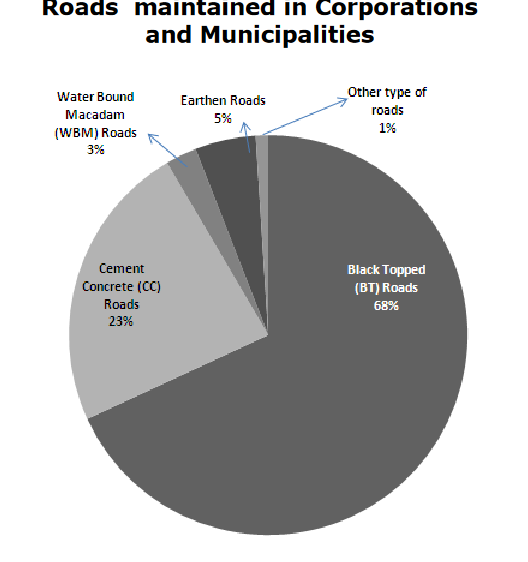
Image: Roads maintained in corporations in municipalities in Tamil Nadu (Courtesy: Municipal administration policy note 2021-22, government of Tamil Nadu.)
Other infrastructural developments like water supply, rejuvenating water bodies, providing street lights, bus stands and markets are also carried out by the local bodies.
Urban health infrastructure, including maternal and child health care, education and welfare schemes are implemented by these bodies. Centrally aided schemes like AMRUT, Swachh Bharat Mission and smart city projects are also implemented in the ULBs.
The delay in the conduct of elections resulted in the Union government withholding the grants for the local bodies as per the 14th Central Finance Commission.
ABSENCE HAMPERED ACTIVITIES
The duties of the local bodies are clearly defined. The absence of elected representatives affected the relief measures during the monsoon this year in several districts and even during the pandemic.
Rural local body elections were held in December 2019, just before the pandemic hit while elections to nine districts were held in October 2021. In the absence of elected representatives, the state government appointed special officers to oversee the functioning whose tenure were extended through ordinances promulgated.
During the pandemic, Kerala vested more responsibilities in local self-governments while the local bodies are less empowered in Tamil Nadu. The call for reforms to empower the local bodies is still pending with more centralisation by the state and Central government.
Get the latest reports & analysis with people's perspective on Protests, movements & deep analytical videos, discussions of the current affairs in your Telegram app. Subscribe to NewsClick's Telegram channel & get Real-Time updates on stories, as they get published on our website.
















